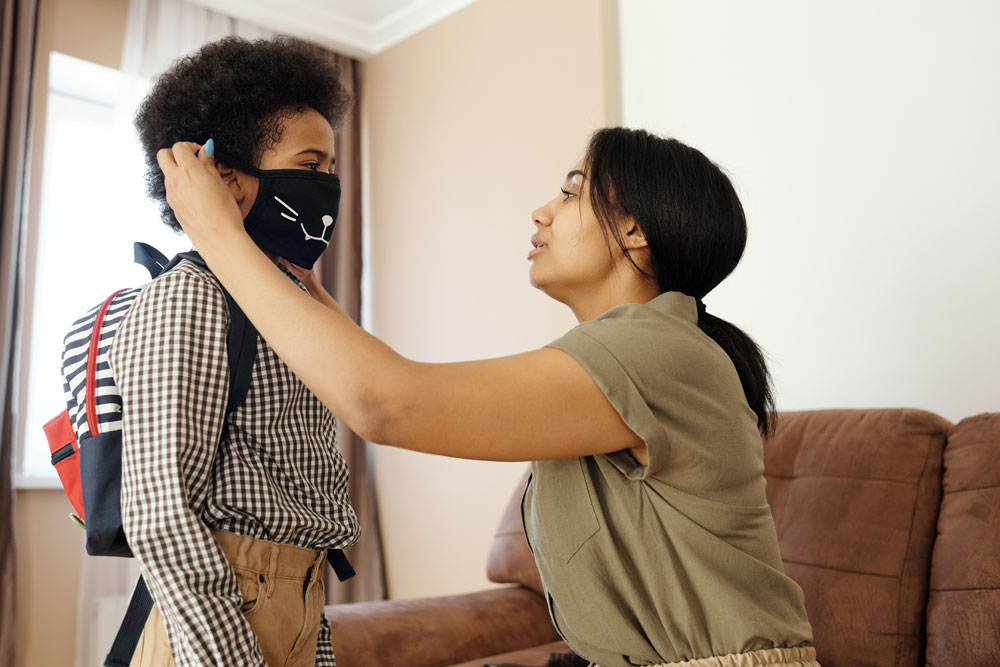
June 14, 2020; Omaha World-Herald and the New York Times
The economics of COVID-19 are clear. If you look at the gender distribution of who has been hit hardest by the unemployment wave, single moms have lost their jobs at a far higher rate than parents of other families with children, according to an analysis of census data from the University of Minnesota. Add this to the burden of educating their school-age children, caring for aging parents, cooking, cleaning, and managing a home, and you have the makings of a tidal wave.
Dig a bit deeper, and the picture becomes even more discouraging. The number of single mothers with jobs was 22 percent lower in April than a year ago, compared to nine percent lower for other parents with children. Low-wage earners, which these single mothers often are, took an even bigger hit. Consider that 83 percent of waitresses, 72 percent of cleaners, 58 percent of cooks, 50 percent of personal care aides, and 14 percent of customer service representatives lost their jobs by mid-April. Before the pandemic, 58 percent of these service jobs were held by women. By mid-April, nearly 5.7 million women had lost those jobs, compared with 3.2 million men. All told, 17 percent of women have lost their jobs since the pandemic began, compared with 13 percent of men, according to the analysis.
Among women, women of color face the highest unemployment rates, with Latinas facing 19.0 percent unemployment, Black women 16.5 percent unemployment, and white women 13.1 percent unemployment. By comparison, Latinos face 15.1 percent unemployment, Black men face 15.5 percent unemployment, and white men face 10.7 percent unemployment.
“Women are put in this impossible position of having to choose between their job and taking care of their kids,” says C. Nicole Mason, president of the Institute for Women’s Policy and coauthor of a study published this month on the struggle of mothers during the pandemic. As the economy begins to reopen, many women are now forced to choose between resuming a career and caring for their families. But many do not even have that choice. Many single mothers may have to shift to part-time work to care for children who remain at home. This break in their career could have lifelong effects, reducing their earning potential and eliminating current and future job opportunities.
Now, “even the limited gains made in the past decades are at risk of being rolled back,” warns a recent report from the United Nations on the impact of the coronavirus on women. In February, just before the pandemic hit in the US, working women passed a rare milestone, making up more than half the nation’s civilian nonfarm labor force. Even so, women continue to do a disproportionate share of the work at home. For single parents, this comes as no surprise. But married women who work full-time also provide close to 70 percent of childcare during standard working hours, according to recent economic research. With the onset of the pandemic, that burden has been supersized as help from cleaners and babysitters has been cut off.
Efforts to help parents, especially single parents, to resume work have not been particularly effective. Subsidies for childcare for essential workers and supports for childcare centers have been met with less than enthusiastic participation, other than by hospital workers.
“Most parents, even if they’re essential workers, are not willing to send their kids to daycare right now. That’s what I’m hearing statewide,” says Angela Burns, a supervisor at the Community Child Care Clearinghouse of Niagara, which helps distribute the scholarships in Niagara County, New York. Scholarships have gone to 88 families, but the county expected many more applicants, and some daycare centers have closed for lack of demand.
Sign up for our free newsletters
Subscribe to NPQ's newsletters to have our top stories delivered directly to your inbox.
By signing up, you agree to our privacy policy and terms of use, and to receive messages from NPQ and our partners.
“Consumer behaviors haven’t necessarily aligned with states’ well-intentioned efforts,” said Dan Wuori, director of early learning for the Hunt Institute, a North Carolina nonprofit that has tracked state child care programs related to coronavirus. “Many [states] have worked hard to bolster the availability of childcare for essential staff, only to find the demand was considerably lower than expected.”
Globally, similar issues for women abound. Australia showed its true colors in this area when it first elevated and then ditched the role and work of women in the nation. It seems that its early approach might have been transformational…but, unfortunately, male leadership prevailed, and it was not.
“One thing the COVID crisis has shown us is how important women’s work really is,” said Rae Cooper, a professor of gender, work and employment relations at the University of Sydney Business School. “They’ve kept us alive and kept our society running. Policy needs to catch up with what women are doing.”
To everyone’s surprise, Australian Prime Minister Scott Morrison, not known as a feminist, moved to protect the early childhood sector in April in amid the pandemic, with wage subsidies for workers (almost all women) and free childcare for all. But on June 4th, Morrison announced a huge program of millions of dollars going to the male-dominated building industry. Four days later, he announced the end of the program of childcare wage subsidies and free childcare, even though the program was supposed to go through September.
Cooper says many Australians are outraged by the government’s approach. “It’s absolutely valuing men’s work over women’s work. It is so obvious and so clear to the public that it’s really quite shocking.”
In Australia, nearly 55 percent of the newly unemployed are women. And surveys report that one of the most critical factors shaping their careers is access to high quality, affordable childcare. It is no wonder they were upset at Morrison’s about-face on this issue. As one provider said, “We’re told we’re essential because people need to go to work and keep the economy running. But once the economy starts running again, then we go back to being unimportant.”
Single mothers have a lot at stake. If they drop out of the workforce to care for children and family members, it will be difficult to get back in. The longer they are out, the more difficult it will be. This is not just true here, but worldwide.
In an NBC Dallas Fort-Worth news story about two African American women—both single parents, both with children to homeschool, both with multiple pulls on their time, and both running nonprofits in response to the COVID-19 pandemic—there’s a real sense of the nonstop pace and total exhaustion it takes to manage this lifestyle. But they also have a sense of hope and some good advice for others. Says Tiwangi Kyle, “We put the cape on, and we want to do everything, but we don’t reach out for help. Reach out for help! If you need help, reach out for it.”—Carole Levine











